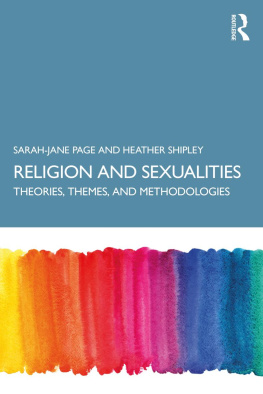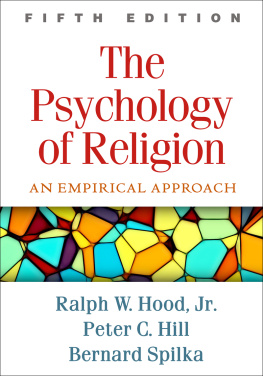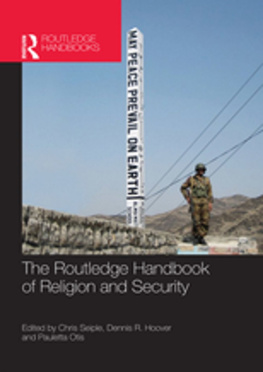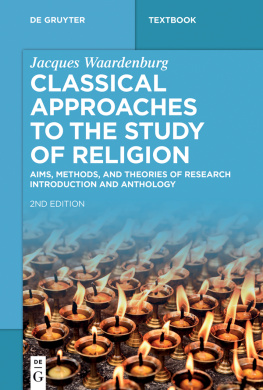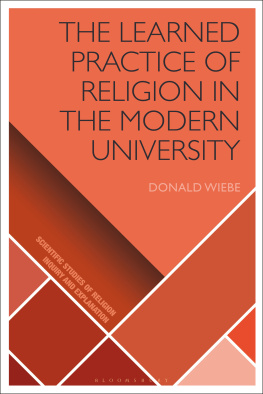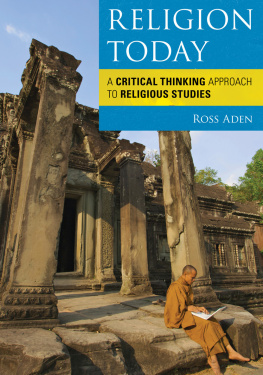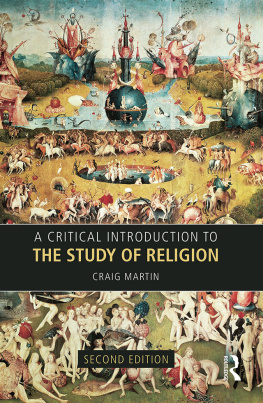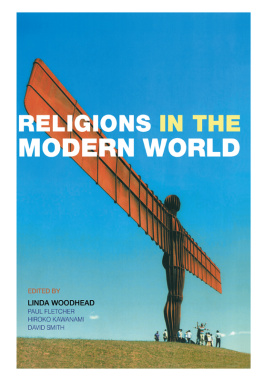The Critical Study of Non-Religion
Bloomsbury Advances in Religious Studies
Series Editors: Bettina E. Schmidt, Steven Sutcliffe and Will SweetmanFounding Editors: James Cox and Peggy Morgan
Bloomsbury Advances in Religious Studies publishes cutting-edge research in the Study of Religion/s. The series draws on anthropological, ethnographical, historical, sociological and textual methods amongst others. Topics are diverse, but each publication integrates theoretical analysis with empirical data. The series aims to refresh the interdisciplinary agenda in new evidence-based studies of religion.
Appropriation of Native American Spirituality, Suzanne Owen
Becoming Buddhist, Glenys Eddy
Community and Worldview Among Paraiyars of South India, Anderson H. M. Jeremiah
Conceptions of the Afterlife in Early Civilizations, Gregory Shushan
Contemporary Western Ethnography and the Definition of Religion, Martin D. Stringer
Cultural Blending in Korean Death Rites, Chang-Won Park
Globalization of Hesychasm and the Jesus Prayer, Christopher D. L. Johnson
Innateness of Myth, RitskeRensma
Levinas, Messianism and Parody, Terence Holden
New Paradigm of Spirituality and Religion, Mary Catherine Burgess
Post-Materialist Religion, Mika T. Lassander
Redefining Shamanisms, David Gordon Wilson
Reform, Identity and Narratives of Belonging, Arkotong Longkumer
Religion and the Discourse on Modernity, Paul- Franois Tremlett
Religion as a Conversation Starter, Ina Merdjanova and Patrice Brodeur
Religion, Material Culture and Archaeology, Julian Droogan
Spirits and Trance in Brazil, Bettina E. Schmidt
Spirit Possession and Trance, edited by Bettina E. Schmidt and Lucy Huskinson
Spiritual Tourism, Alex Norman
Theology and Religious Studies in Higher Education, edited by D. L. Bird and Simon G. Smith
The Problem with Interreligious Dialogue, Muthuraj Swamy
Religion and the Inculturation of Human Rights in Ghana, Abamfo Ofori Atiemo
UFOs, Conspiracy Theories and the New Age, David G. Robertson
Secular Assemblages, Marek Sullivan
The Critical Study of Non-Religion
Discourse, Identification and Locality
Christopher R. Cotter
For Saoirse, whose imminent arrival pushed me to finally finish this book.
This book could never have come to fruition without the generous support of the Arts and Humanities Research Council during my doctoral study at Lancaster University, and the Leverhulme Trust in my current position at the University of Edinburgh.
Thanks are due to all who helped with my empirical research, particularly the Southside Heritage Group, Southside Community Centre, the Museum of Edinburgh, the University of Edinburghs Scottish Studies library and, most importantly, all those Southsiders who gave of their time and themselves.
Thanks to all at Lancaster University and to the continued support and friendship from colleagues at the British Association for the Study of Religions, the Nonreligion and Secularity Research Network, the Religious Studies Project and Culture on the Edge. Thanks to Martin Stringer and Linda Woodhead for their thorough examination of my doctoral dissertation, to Steve Sutcliffe for his supervision of my pre-doctoral degrees and current mentoring at Edinburgh, to Carole Cusack for the unofficial mentoring and opportunities, and to the anonymous peer reviewers and all at Bloomsbury. Thanks also to, in alphabetical order, Naomi Appleton, Stephen Bullivant, Tommy Coleman, Ryan Cragun, James Eglinton, Lois Lee, Eoin OMahony, Russell McCutcheon, David Robertson, Johannes Quack, Ethan Quillen, Liam Sutherland, Teemu Taira, Jonathan Tuckett and Kevin Whitesides I owe you all a drink. And to the most important colleague of all, Kim Knott I couldnt have asked for a better doctoral supervisor, and I couldnt have done this without you. Thank you, Kim.
Finally, a huge thank you to those in my life outside academia through singing, acting, politics and the vicissitudes of life for their grounding, support and enthusiasm, and for making this all worthwhile. Thanks to Bob, Lindsey, Geoff, Ben and Kate for proofreading help and to Lindsey once more for doing it all again! To Mum, Dad, Lindsey, Keith and Sarah-Lou, whose support and belief go far beyond family. And to Saoirse for making this happen.
So, what is it that you do, Chris?
This is a fraught question for anyone at the best of times. Its a question I try my best not to ask others. Or, when I do ask, I try and remove the risk of defining someone by their work or their potential worth in terms of capital social, economic, cultural or otherwise by asking, What do you like to do?, What do you do in your spare time? or Tell me a bit about yourself: who is ? Not perfect questions, by any means, but should my conversation partners then wish to define themselves in terms of their economic activity through passion or habit that is their choice. And oftentimes this leads to a more interesting conversation for everyone involved, if only for the sheer novelty of briefly stepping outside of our habitual opening gambits.
However, for those of us who are positioned within the academic field of Religious Studies, the question what do you do comes with additional, field-specific anxieties. The admission that one is a Religious Studies scholar tends to produce in my experience one of three responses: the assumption that you are training for Christian ministry, a question about whether you are religious or bafflement as to why someone might study something so esoteric with such seemingly limited economic prospects. Depending on my mood, on whether I feel like getting into a lengthy conversation or on whether I feel like using the conversation as a data-gathering exercise, I may deflect the question with a stock response of an academic, a lecturer at the university, a social scientist, a sociologist or the like. Sometimes the word religion will creep into my response, heavily caveated with qualifiers: Im a sociologist of religion, I study/teach the critical social science of religion, I work on the comparative study of religion and so on. You have to pick your battles, and sometimes a social interaction just doesnt call for a lengthy digression on how people dont tend to ask criminologists if they are criminals or medical students if they are ill, nor on how the myths, rituals, values, morals, philosophies, lifestyles, practices, politics, truth claims, cultural artefacts and more that we tend to associate with religion and the very political acts of deeming something religion or not are far from esoteric and have had, and continue to have, major ramifications that affect our day-to-day lives.
Given that my empirical research over the past decade has focused mainly upon non-religion in various forms, my response to this question is made both easier and harder. Easier because I get to sidestep some potential stock responses by identifying myself as the Atheism Guy in the Religious Studies department or by semi-seriously pointing to all that stuff that you would assume goes on in a Religious Studies department and claiming that I do the boundary work by studying everything else. Harder because of a prevalent assumption that I must be engaged in some sort of know thy enemy mission particularly given that I have spent most of my academic career in a School of Divinity and also because, as if religion wasnt esoteric enough, how might I even begin to define what counts as a legitimate object of my study?


